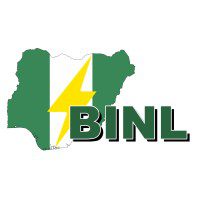By Esther Agbo
Nigeria Backbone Infrastructure Limited, a multi-national company, has unveiled plans to invest $172 billion in developing the country’s infrastructure over the next 22 years.
This significant investment will target sectors such as mineral resources, energy, agriculture, housing, and transportation, leveraging alternative financing methods, according to a company statement released on Saturday.
President Bola Tinubu’s administration has emphasized its commitment to attracting foreign direct investment and promoting innovative financing solutions for crucial infrastructure projects.
Last year, the Minister of Industry, Trade and Investment, Doris Aniete, reported that the government had secured $30 billion in commitments from foreign investors.
However, Nigeria still faces a substantial infrastructure gap, requiring $3 trillion over 30 years as outlined in the National Integrated Master Plan.
The Group Chief Executive Officer, Henry Owonka, stated that the company, in collaboration with foreign partners, is seeking approval for a joint venture model to facilitate its investment plans.
He stressed the importance of consistent investment, particularly in the mining sector, and expressed a preference for structured investment programs over isolated investments.
“What we are looking for is for us to structure our program of investment, we are not looking for a sovereign guarantee which will deplete the foreign reserves but innovative ways to collateralize those natural resources that the country has in abundance. The president has verbally approved our request.
“The company expressed its interest in investing in the range of commodities. We are seeking approval for a joint venture model because in that way we can draw more investors not only in the country but also outside the country. Because when you have a joint venture with the government, it’s better and that’s what we are seeking rather than for them to just issue land to us,” Owonka said.
According to Owonka, the company plans to invest $4 billion in the mining sector, contingent on acquiring accurate data and government cooperation. This partnership aims to reduce Nigeria’s dependence on crude oil by diversifying revenue sources.
He stated, “to explore mineral resources but we need data and that is also one of the offers we proposed so that we can bring in our expertise and help the government obtain accurate data and then we can explore those minerals.
This partnership will help the government plan to reduce dependence on crude oil. We also doing this across all the ministries because it’s a $172bn investment drive.”
Furthermore, the Chief Operations Officer, Clement Kwegyir-Afful, in his presentation highlighted the investment drive’s goal to address Nigeria’s infrastructure gap through private sector involvement.
He mentioned that one of the company’s subsidiaries focuses on renewable energy solutions, aiming to bridge the energy gap with innovative financing strategies.
He said, “The current administration is looking for several investments to come in through the private sector to reduce the infrastructure gap. The NBIL have come together as a team to support the government achieve this mandate without any sovereign guarantee.
“We want to help address the energy gap through the use of renewables, so one of our subsidiaries focuses on renewable and how we can address that. We are going to bring in innovative ways of funding through financier engineering to raise funds that would address the infrastructure gap.”
Continuing, he added that, “Minerals exploration is one area the government want to use to create another source of revenue shifting from oil and that is one strong area that we want to focus on. It will raise a different form of revenue.
“To do this will require a significant amount of money, so over the next 22 to 23 years, we are looking to invest $172bn dollars. If you break this down yearly, that works to $6bn every year in investment out of the numerous numbers the president is looking for.
“We have grouped our project into phases; the first one will be the ones that have the most impact on Nigeria’s landscape, so we are looking at hospitals, renewable energies, mineral exploration and exportation because that is where we have huge concerns and also some of the deep sea ports.”

